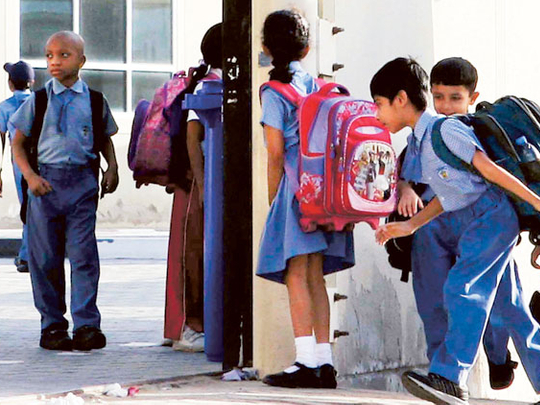
Dubai: School children may be at risk of influenza and hepatitis A after the winter break, said a senior official from the Dubai Health Authority (DHA). Vaccination is advised to mitigate the risk.
Dr Fathia Hatim Al Mazmi, Head of Health Promotion Section from the DHA said that the risk arises from two factors – children visiting countries where Hepatitis A is prevalent and exposure to influenza viruses due to change in weather.
Dr Fathia told Gulf News, “Children are at a higher risk because they are in close contact with other school kids during playtime and in daycare facilities.”
According to the World Health Organisation (WHO) influenza is a viral infection that affects mainly the nose, throat, bronchi and, occasionally, lungs. The virus is transmitted easily from person to person when infected people cough or sneeze. In the very young, it can lead to severe complications.
Further the WHO defines hepatitis A as a viral liver disease that can cause mild to severe illness. The virus is transmitted through ingestion of contaminated food and water or through direct contact with an infectious person.
The highest rate of hepatitis A is among children 5-14 years of age estimates the Centres for Disease Control and Prevention (CDC).
The CDC say that it is usually spread when a person ingests faecal matter - even in microscopic amounts - from contact with objects, food, or drinks contaminated by stool from an infected person.
Dr Fathia said vaccination is an effective way to reduce the risk. “These are not part of the immunisation schedule. However, taking the influenza and hepatitis A vaccines will provide the necessary protection,” she said.
Speaking to Gulf News, Dr Mariam Al Matroushi, Director of Health Legislation and School Health Programmes at the UAE Ministry of Health (MOH) said that immunisation to seasonal influenza can provide 70-90 per cent protection if the vaccine matches the circulating strain of virus.
She said. “The faecal oral route infections can be prevented by proper sanitation and personal hygiene through regular hand washing as well as through the sanitary disposal of faeces and diapers. In flu cases, children should be taught to cover their nose and mouth with a tissue when they cough or sneeze, disposing tissue immediately.”
Dr Maneesha Sanjeev Phadke, GP and school medical officer at Al Diyafah School, Dubai added, “The cases of influenza are higher than Hepatitis A.” She told Gulf News that due to environmental changes in the holiday destination, students, especially those prone to dust allergy and asthma, are susceptible to infections.












